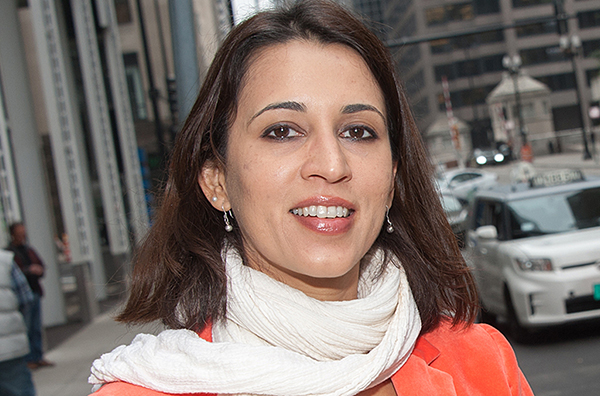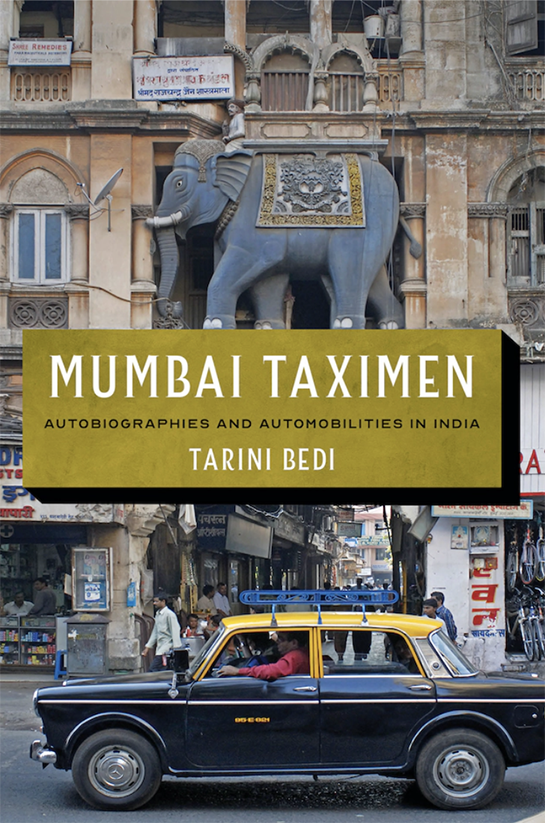Tarini Bedi
Introduction
College of Liberal Arts and Sciences | Anthropology
Tarini Bedi
Tarini Bedi
Tarini Bedi was born in southern India, in Madras, now called Chennai. She lived for some years in Hyderabad before moving to Mumbai, where she spent much of her adolescence.
“I learned English as a child, went to school in English and spoke English as much as I did in Indian languages,” she said. “Indians are famous for using a strategy known as ‘code-switching,’ where we use more than one language in the same conversation and often even in the same sentence. This is because most Indians have at least two ‘mother tongues’ or ‘first languages’ and English is often one of them for urban Indians.”
Bedi came to the U.S. to attend college. She earned a bachelor’s degree in social sciences and theater at Bennington College, a master’s degree in political science at McGill University in Montreal, and a master’s and Ph.D. in anthropology at UIC.
She lives in Hyde Park with her husband, Dhruv Mubayi, professor of mathematics, statistics and computer science in the College of Liberal Arts and Sciences, and their daughter, Maya.
She loves to travel and play the sitar.
2

Tarini Bedi
Mumbai Taximen

Mumbai Taximen: Autobiographies And Automobilities In India
University of Washington Press
In this first book-length study of Mumbai’s taxi industry and of the livelihoods that surround it, Tarini Bedi draws from the lives and voices of chillia taxi drivers who have sustained a hereditary trade for more than a century. Bedi considers the Bombay taxi in all its forms: a material object that is driven, an economic and political connection, an expression of kinship, an embodiment of urban time and technology, and more. She illustrates how the accumulation of capital in this masculinized and mobile trade depends on forms of fixed domestic labor and an ethics of care, and how connections among these factors impact the production and reshaping of working-class personhood and laboring subjects. From beginning to end, the world of Mumbai automobility unfolds through depiction of the sensory, embodied, and political domains of taxi drivers’ work. While most understandings of automobility remain tied to Western assumptions, patterns of driving, (sub)urbanization, and engagements with the road, realities in the Global South differ. Mumbai Taximen provides a correction to this imbalance from Mumbai through an timely exploration of South Asian social, material, political, labor, and technological histories and practices of motoring and automobility